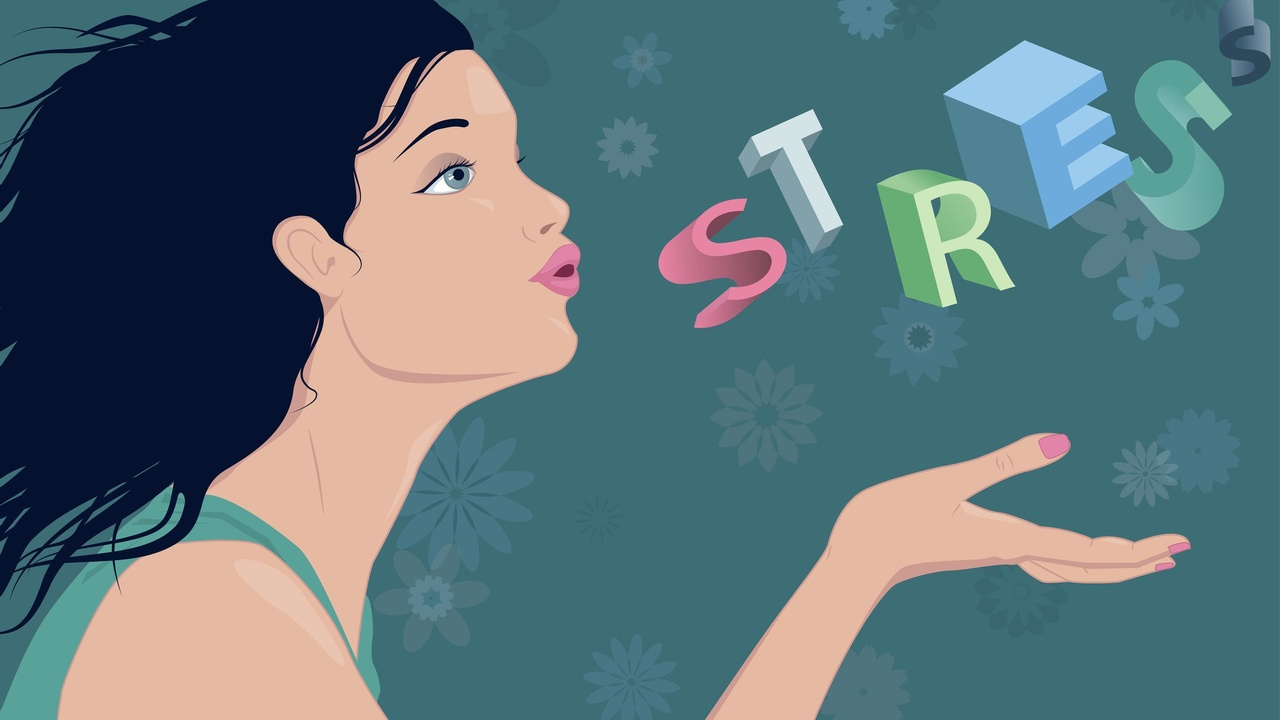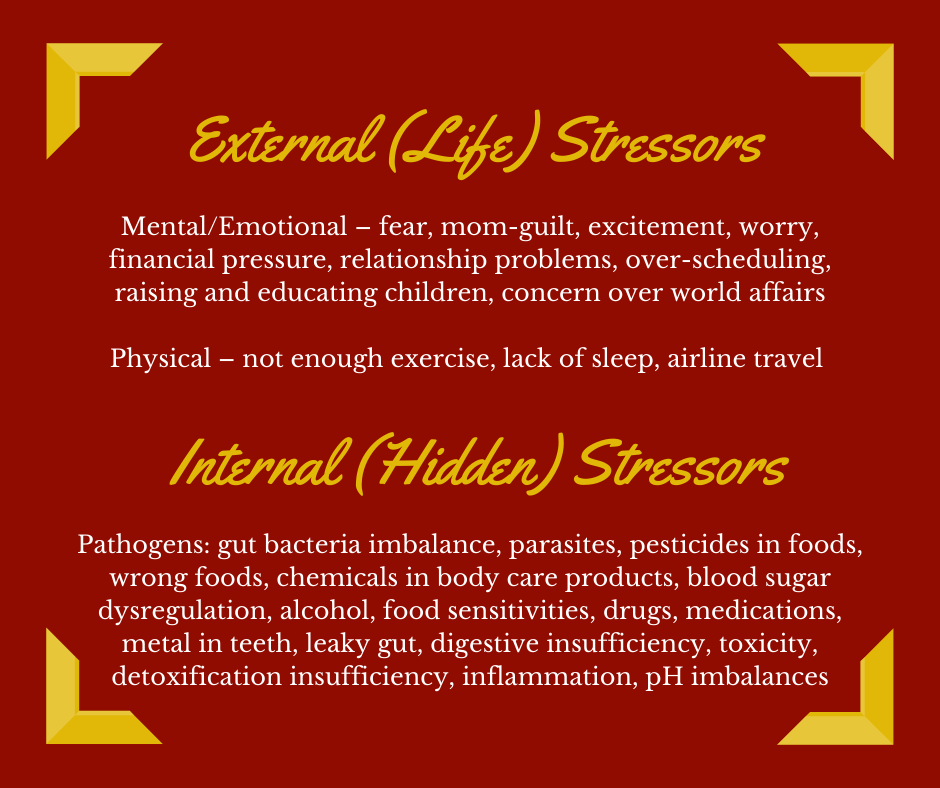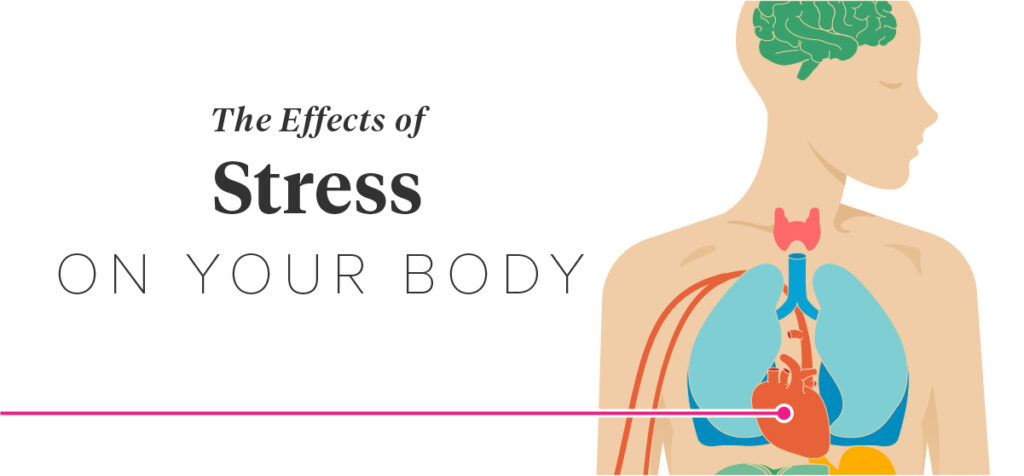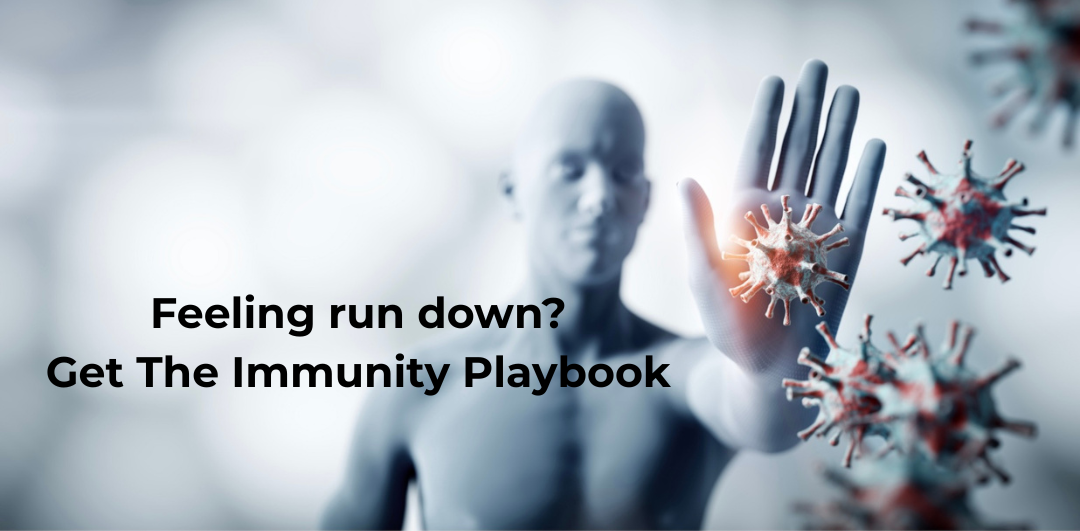Is Your Stress Hormone the Reason For Your Health Problems?
Apr 19, 2021
As a functional medicine coach, one of the questions I am asked most often by clients when it comes to losing weight and clearing up other health issues is “What am I doing wrong?” or “What is wrong with me?”. Here’s what I tell them – it isn’t about what you are doing “wrong”. The inability to lose weight, etc. is NOT because you don’t have enough willpower or because you aren’t able to eat perfectly all the time, so please, stop blaming yourself.
One of the biggest reasons my clients so often have trouble overcoming weight loss resistance or feeling less tired or a myriad of other health issues is actually because of stress.
We live with constant stress. Instead of occasional demands, followed by periods of rest, we are constantly triggering the “fight-or-flight” stress response. These demands include both hidden stressors and life stressors.

In fact, the past year has been an extreme example of living with constant stress from both types of stressors. The stress of the past year has caused a “cascade of hormone imbalances” that has caused many health issues to pop up with a vengeance in so many people. How does this stress cascade work and how can you know if stress is the source of your health issues?
WHAT IS STRESS?
Stress is your body’s reaction to a stimulus (real or imagined, external or hidden) that causes emotional and/or physical tension. Stress triggers a cascade of stress hormones that produces changes in the body such as shortness of breath, muscle tension, increased heart rate and more. The combination of these reactions is known as the “fight-or-flight” response – a survival response that helps someone fight off or escape a threat. Here’s a breakdown of what happens:
-
You see or hear something that might be a danger – the eyes and/or ears send that information to the amygdala, the area of the brain responsible for emotional processing, and it processes that info to decide whether this something is in fact a danger. If yes, it then sends a distress signal to the hypothalamus.
-
The hypothalamus is a sort of command center that talks with the rest of the body via the autonomic nervous system. The autonomic nervous system, which controls involuntary bodily functions such as breathing, has two branches: the sympathetic and the parasympathetic nervous systems. The sympathetic nervous system is responsible for the “fight-or-flight” response. The parasympathetic nervous system is responsible for calming the body down after danger has passed.
-
Once the sympathetic nervous system has been activated, it sends signals to the adrenal glands which respond by pumping adrenaline into the bloodstream. This adrenaline brings about the physiological changes associated with stress – shortness of breath, pounding heart, senses become sharper, etc.
-
After the initial adrenaline rush subsides, the hypothalamus activates the second component of the stress response system — known as the HPA axis. This network consists of the hypothalamus, the pituitary gland, and the adrenal glands. The HPA axis relies on a series of hormonal signals to keep the sympathetic nervous system going.
-
If the brain continues to perceive a danger, the hypothalamus releases the corticotropin-releasing hormone (CRH), which travels to the pituitary gland which then releases the adrenocorticotropic hormone (ACTH). The ACTH then travels to the adrenal glands prompting them to release cortisol, which keeps the body on high alert.
-
When the perceived danger is finally gone, cortisol levels drop and the parasympathetic nervous system kicks in.
This cascade of hormonal activity can wreak havoc on your body – particularly when it’s never-ending.
HORMONES & STRESS

As you can tell, there are several stress hormones in your body that are activated during the “fight-or-flight” response. The biggest of these hormones are adrenaline and cortisol, as they are the hormones most responsible for the body’s physiological changes during times of stress. Out of these two, cortisol is the hormone most responsible for chronic stress and its effects.
Adrenaline is a powerful hormone but it’s effects are short-lasting (which is why it’s most closely related to panic situations). The effects of cortisol, however, are more prolonged. Cortisol, in and of itself, isn’t a negative hormone. In its normal function, cortisol helps us meet challenges by converting proteins into energy, releasing glycogen and counteracting inflammation. For a short time, that’s okay. Problems arise when you have continuously high levels of cortisol in the body, as this wears the body down.
Cortisol is produced by the adrenal glands and when these glands are asked to consistently produce this stress hormone it eventually leads to adrenal fatigue or adrenal burnout. Adrenal fatigue theory suggests that overexposure to stress drains the adrenals leading to a low cortisol state that can cause low energy, brain fog, depression and a broad spectrum of non-specific yet often debilitating symptoms that, if left unresolved, leads to full blown diagnosable degenerative diseases.
Other hormones that are affected by stress include estrogen, progesterone and testosterone. As the body works to produce more adrenal hormones, your reproductive hormones also take a hit which can lead to decreases in these as well.
THREE STAGES OF STRESS
Acute stress affects the body and its organs in the short term; chronic stress is long-term. How does this long-term come about though? The body has three stages of stress – alarm, resistance and exhaustion.
ALARM: This first stage is the body’s response to a stressor that we walked through above. The amygdala perceives danger and notifies the hypothalamus which then activates the sympathetic nervous system and the HPA axis and a cascade of stress hormones is released resulting in physiological changes.
RESISTANCE: In this stage, if the stressor persists then the body must find a way of coping. However, the body cannot continue to cope with a stressor indefinitely as its resources will begin to be depleted. In this stage, the mind may also try to focus exclusively on the problem causing the stress which can make the issue seem insurmountable.
EXHAUSTION: This stage is exactly what it sounds like. By this stage, your body’s resources are wholly depleted and normal functions are unable to happen. Symptoms of stress such as high blood pressure or sweating may reappear, while long-term damage begins as the immune system has become exhausted with coping. This may manifest in a variety of ways such as ulcers, depression, diabetes, anxiety, digestive health issues, sleep issues, chronic pain and more.
PHYSICAL EFFECTS OF CHRONIC STRESS

Chronic stress causes hormonal imbalance which in turn causes a plethora of responses in the body that are negative to your health. Physical effects of chronic stress and hormonal imbalance include:
-
Weight gain – Since cortisol takes longer than other hormones to leave your system, it can cause increases in appetite. Why? To replace the calories burned while you were “fighting or fleeing”. The problem is that in most of our every day stressful situations, we aren’t actually doing either. So, you’re consuming extra calories that don’t need to be replaced. Hence, the stress-cortisol-weight gain connection. In particular, this can cause added fat in the abdominal area, aka the dreaded “muffin top”.
-
High blood pressure – Hormones released during stressful situations temporarily increase your blood pressure by narrowing blood vessels and causing your heart to beat faster. Over the long-term this may permanently damage your arteries leading to heart disease.
-
Sleep issues – Hormonal imbalances can result in insomnia and intermittent sleep (particularly when progesterone is low since it increases the production of GABA, a neurotransmitter that promotes sleep).
-
Muscle/Joint pain – Estrogen has an anti-inflammatory effect on the body so when estrogen levels are on the low side, you can experience more muscle/joint pain. You may also experience lowered immunity and inflammatory responses in the body, slowed wound healing, and other related health consequences.
-
Bloating – Progesterone is a natural diuretic so when the levels are low less fluid is removed from the body causing bloating and discomfort.
-
Impaired cognitive function – Chronic stress can lead to poor concentration, inability to complete tasks or even heightened confusion in situations that are only mildly stressful.
-
Suppressed thyroid function – Stress alone may not directly cause a thyroid disorder but it will make any existing condition worse. The reason? When stress impacts the thyroid, your body’s metabolism is slowed thus causing weight gain.
-
Blood sugar imbalances – When you’re stressed your insulin levels drop while the stress hormones go up. The result? It’s harder for your insulin to work the way it should which may raise your blood sugar. If you then reach for sugar to cope with the stressful situation, you’re simply exacerbating the situation.
-
Depression – Neurotransmitters in the brain — such as serotonin, dopamine, and norepinephrine — affect feelings of happiness and pleasure and may be out of balance in people with depression. Stress not only increases hormone levels of cortisol, etc., but it can reduce serotonin and other neurotransmitters. When the stress response fails to shut off and reset, such as during chronic stress, it can lead to depression.
Studies suggest chronic stress also depresses the immune system, leaving you more susceptible to colds, viruses and influenza; plus, stress is notorious for flaring up asthma & exacerbating skin conditions such as eczema. All these symptoms, especially weight and sleep issues, cause further prolonged stress and anxiety, which exacerbates the hormone imbalance that started this whole thing in the first place! It’s a never-ending cascade of stress and hormonal imbalance. So, what can you do?
BALANCE HORMONES & STRESS, NATURALLY
Managing stress is different for everyone, but there are plenty of natural, drug-free ways to deal with stress and anxiety.
-
Physical activity – Exercise is one of the best stress busters out there because it deepens breathing and relieves muscle tension. Plus, it gives you something else to focus on other than what’s stressing you AND helps in managing weight. Exercise also releases endorphins that boost your mood and minimize pain. Exercise literally changes your chemistry, changes your mindset, emotions, and is crucial for good health. Regular cardio such as walking or running will lower adrenaline and cortisol levels and increase serotonin. Engaging in movement therapies such as yoga, tai chi or qi gong can induce calmness due to the focus on deep breathing and fluid movements.
-
Healthy eating – A healthy diet is crucial for maintaining hormone balance and general well-being. Plus, eating well can help in maintaining a healthy weight. Eating a diet rich in vitamins, minerals and antioxidants will help your brain in fighting off stress. Avoid sugary, refined carbs, and other foods that promote inflammation and instead focus on clean protein, fresh fruits and veggies, fish, nuts and seeds, along with GOOD fats found in foods such as avocado, coconut oil, and salmon.
-
Supplement your health – Herbs & nutrients that are adaptogens can help regulate the secretion of cortisol. Some to try include B vitamins, magnesium, GABA, ashwagandha, rhodiola, maca, and DHEA. Of course, before you begin taking anything new you should consult with your healthcare provider.
-
Practice self-care – I get it, you’re swamped all the time, always on the go. The last thing you want to do is try to fit yet another thing into your busy schedule. But self-care is vitally important to your health and well-being and it doesn’t need to be a major drag on time and money. There are many ways to participate in self-care that are affordable and time-saving. You can find a list of simple ways to practice self-care HERE.
-
Social support – When’s the last time you called up your best friend to vent? It felt good, right? Having a good social support system of close family and friends will help you deal with times of stress (and may help you live longer!).
IS STRESS THE CAUSE OF YOUR HEALTH ISSUES?
If you’re ready to find out if stress is the root cause of your struggles with weight loss, sleep and other health issues, I’m here to help. Set up your FREE consultation today and we’ll chat about what tests you should be taking and what your next steps should be. Together, we will help you regain control of your health and hormones and reduce stress!


